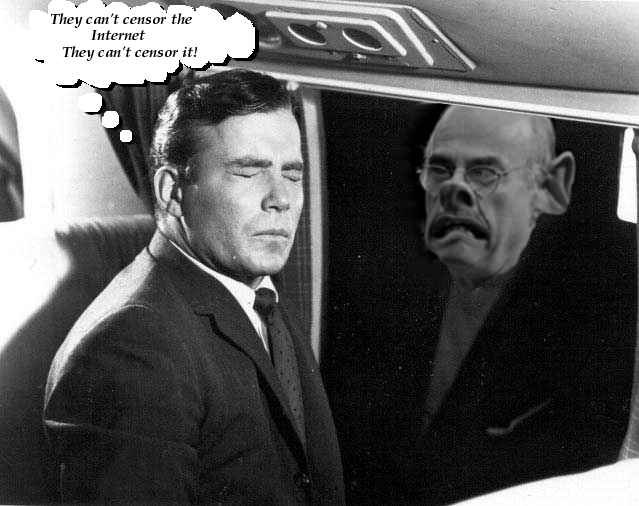
Posted on 02/18/2009 8:11:08 AM PST by BGHater
Canadian actors made a case for new media funding at a hearing today before the Canadian Radio-television and Telecommunications Commission.
The performers helped kick off the first day of hearings on regulating online content by urging the CRTC to make Internet service providers follow the same rules as television and radio broadcasters and protect Canadian content online.
"This is a battle for the future. What we want is a place for Canadian storytellers and our stories," said Richard Hardacre national president of ACTRA, the union representing 21,000 English-speaking artists across all media platforms. "We want to share our talents with Canadians and with global audiences. We need to get it right now. Tomorrow is too late."
The CRTC first looked into licensing new media in 1999 but with few households at the time having access to high-speed Internet it decided that licensing would not contribute to its development and that exempting it would not make it difficult for licensed broadcasters to follow the rules.
With 93 per cent of Canadian households having broadband access and anyone being able to watch videos and television shows, play games and listen to music online, the CRTC has decided to revisit the issue.
The ACTRA representatives highlighted that point in their presentations and said licensing new media will provide needed funding and protection of Canadian content.
Comedian Colin Mochrie, of This Hour Has 22 Minutes and Whose Line Is It Anyway? said Canadians can easily view clips and entire episodes of his shows on YouTube and can also post their own cell-phone video recordings of his stand-up appearances to the video-sharing site.
"This is now the norm. People are watching original programs online or on their iPods. You see, just like television, new media is just another platform for viewing and distributing programming content," Mochrie said in his presentation, where he argued new media should follow the same rules.
"The space for content is practically endless; however, being endless, content can get easily lost. So how do we make sure Canadians can find their own content? ... When I star in a movie or a TV show, I do it because I want to work, I want people to see the show, to experience it. They can't do that if they aren't given the choice."
Charlotte Arnold, an actress in Degrassi: The Next Generation, said exclusive online content helps promote her show but also means the regulated broadcaster that airs it has to compete with the unregulated side of its business.
"Because of the new media exemption orders, we have a situation where broadcasters are competing with their own unregulated selves," Arnold said. "And the broadcasters have already signaled to you in their interventions that as their audiences move to the Internet, they will seek relief from their existing regulations. This is absolutely the wrong approach. We say, regulate broadcasting on the Internet, because it's just another platform."
Bruce Dinsmore, who provides the English voice on popular Quebec online series Tetes a Claques, said only new funding will ensure professional-quality Canadian content can survive online.
"While there is no question amateur videos can entertain and inform us, they alone cannot be relied upon to share the important stories that Canadians want to share and tell. For that we need high-quality, professionally produced content, including scripted drama," Dinsmore said. "If we want a wide array of content produced we need new sources of funding."
The ISPs are arguing for the status quo, saying any licensing costs and taxes will be transferred to the consumers.
First it starts as this...simply protecting copywrited material (fair enough), but my fear is if any other doors get opened by this. If Government gets more power to regulate the net, when does it stop?
Just sayin...
Ya know, if an outsider accused Canadians of being too stupid to use a search engine, they'd be totally up in arms (well, as totally up in arms as Canadians ever get...).
Actually Canadians are too stupid to use a search engine.
no, No, NO, do not regulate the internet, the last bastion of free speech.
If you think your hollywood leftarded actors are brutal, you should see ours.
Youtube’s “Star Wars Kid” is Canadian.
it sounds like they want to take the bizarre Canadian Content rules that have applied to TV and Radio up there for years, and apply them to the internet. (that is why you hear Barenaked Ladies or Gordon Lightfoot every third song while listening to Canadian radio). Whatever, you can pretty much cover all Canadian content in just three domains:
nhl.com
timhortons.com
molson.com
Disclaimer: Opinions posted on Free Republic are those of the individual posters and do not necessarily represent the opinion of Free Republic or its management. All materials posted herein are protected by copyright law and the exemption for fair use of copyrighted works.